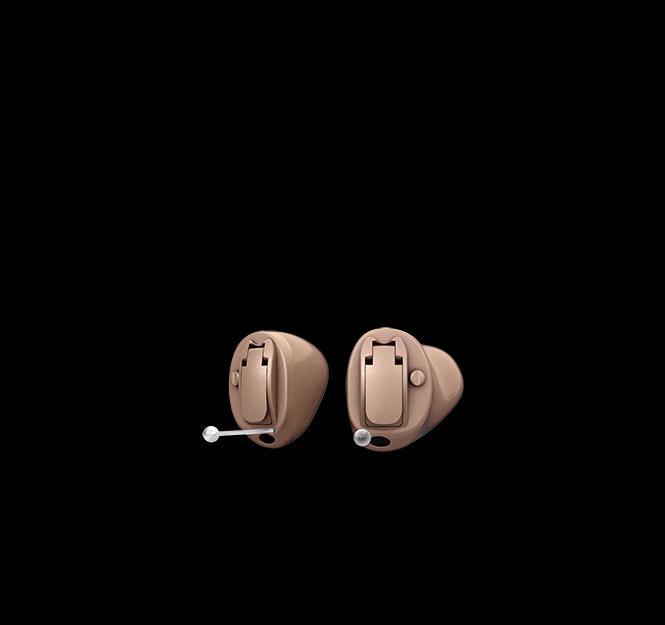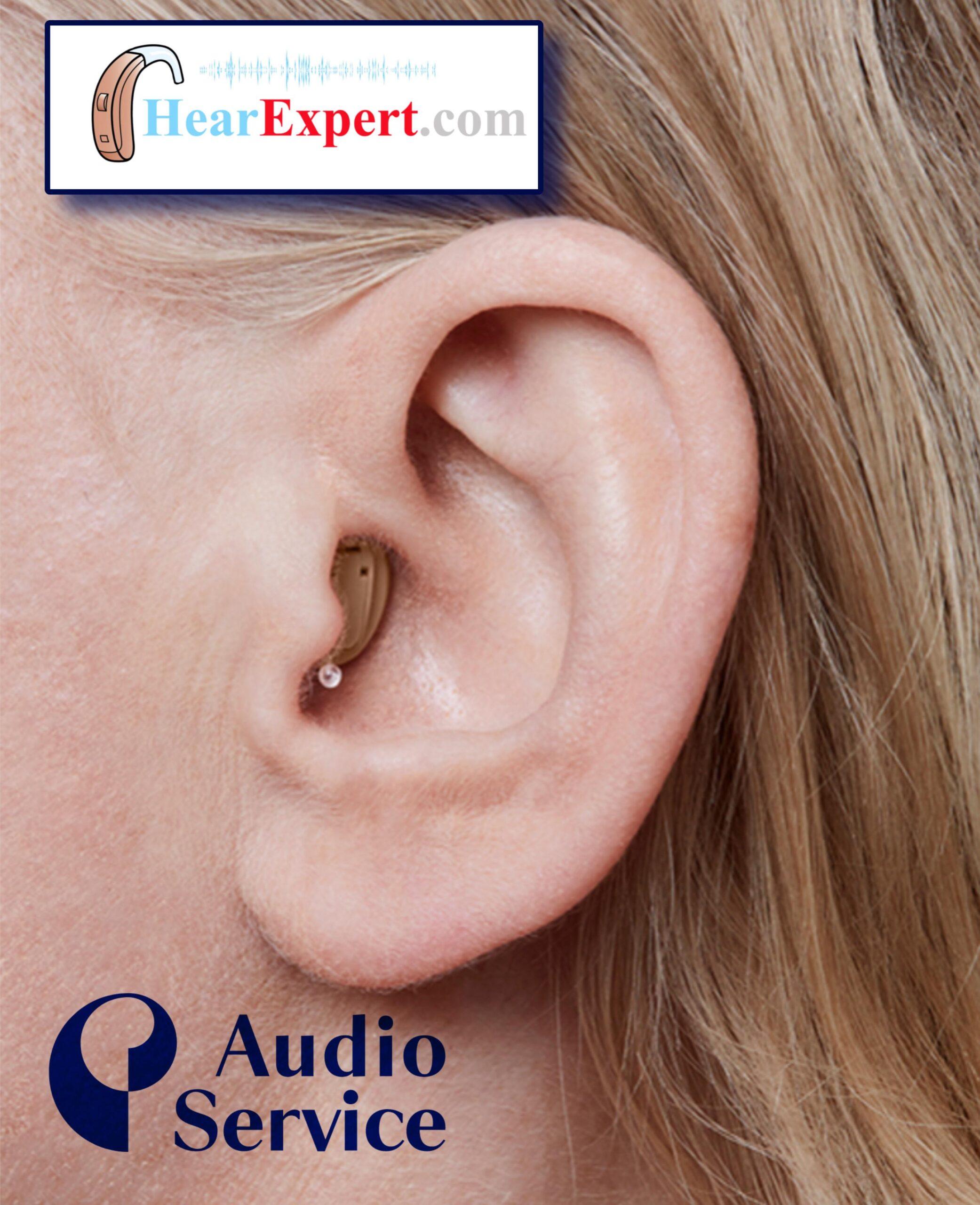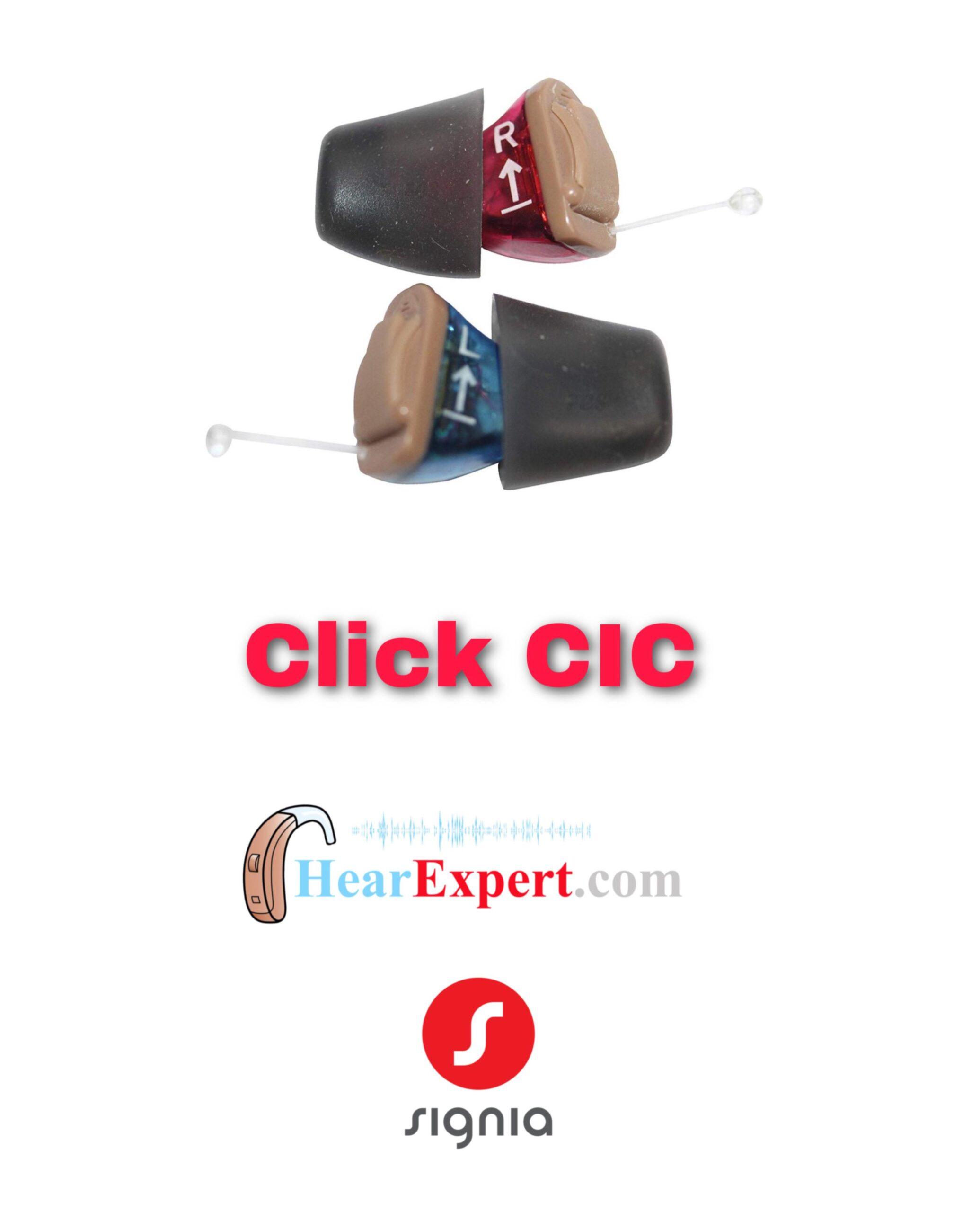If you’re considering Completely-In-Canal (CIC) hearing aids, you’re probably looking for a discreet, comfortable, and effective solution for hearing loss. These tiny devices fit snugly inside your ear canal, making them nearly invisible to others. But before you make a decision, there are several important things to consider. In this guide, we’ll cover everything you need to know before buying CIC hearing aids, including their benefits, drawbacks, cost, maintenance, and whether they’re the right choice for you.

1. What Are CIC Hearing Aids?
CIC hearing aids are small, custom-fitted devices designed to sit entirely inside the ear canal. Unlike behind-the-ear (BTE) or in-the-ear (ITE) hearing aids, CIC models are nearly invisible when worn. They use advanced technology to amplify sound while minimizing background noise. These hearing aids are commonly recommended for people with mild to moderate hearing loss.
2. Advantages of CIC Hearing Aids
Many people choose CIC hearing aids because of the following benefits:
- Discreet Design: One of the biggest advantages is their nearly invisible appearance. If you feel self-conscious about wearing hearing aids, CIC models offer a discreet option.
- Natural Sound Quality: Because they sit deep inside the ear canal, CIC hearing aids can provide a more natural sound experience by utilizing the ear’s natural shape to funnel sound.
- Less Wind Noise: Since they are placed inside the ear, CIC hearing aids are less affected by wind noise, making them a great choice for outdoor activities.
- Easy to Use with Headphones and Phones: Their placement inside the ear makes it easier to use over-ear headphones and talk on the phone without interference.
- Customization for Comfort: Since they are custom-molded to fit your ear canal, they can be more comfortable compared to standard models.
- Reduced Feedback: The snug fit inside the canal helps minimize whistling or feedback sounds, which are common in some other hearing aids.
3. Potential Drawbacks of CIC Hearing Aids
While CIC hearing aids offer many benefits, they may not be the best choice for everyone. Here are some potential downsides:
- Limited Features: Due to their small size, CIC hearing aids may not have advanced features like directional microphones or Bluetooth connectivity.
- Battery Life: These hearing aids use very small batteries, which may need frequent replacement.
- Not Suitable for Severe Hearing Loss: If you have severe or profound hearing loss, CIC hearing aids might not provide enough amplification.
- Can Be Hard to Handle: The tiny size makes them more difficult to insert, remove, and clean, especially for those with dexterity issues.
- Higher Cost: Customization and advanced technology often make CIC hearing aids more expensive than standard models.
- Earwax and Moisture Buildup: Since they sit inside the ear canal, they are more prone to wax buildup and moisture damage, which can affect performance.
4. Are CIC Hearing Aids Right for You?

Before buying CIC hearing aids, it’s important to determine if they suit your specific needs. Consider these factors:
- Degree of Hearing Loss: If you have mild to moderate hearing loss, CIC hearing aids can work well. For severe hearing loss, you may need a more powerful model.
- Ear Shape and Size: Since CIC hearing aids are custom-made, they may not be suitable if you have narrow or irregular ear canals.
- Lifestyle Needs: If you spend a lot of time in noisy environments, you might need hearing aids with directional microphones, which CIC models usually lack.
- Dexterity and Vision: If you have trouble handling small objects, a larger hearing aid might be a better choice.
- Medical Conditions: If you have frequent ear infections or excessive earwax production, CIC hearing aids may not be the best option for you.
5. Cost of CIC Hearing Aids
The cost of CIC hearing aids varies based on brand, features, and customization. On average, they range from Rs 19990/- to 300000/- per unit. Some insurance plans may cover part of the cost, so check with your provider.
While CIC hearing aids can be pricey, they offer a nearly invisible and comfortable option for hearing improvement. If cost is a concern, consider financing plans or refurbished models. Some manufacturers also offer subscription plans that cover regular servicing and battery replacements.
6. Maintenance and Care
CIC hearing aids require regular maintenance to function properly. Here are some tips to keep them in good condition:
- Clean Regularly: Use a soft brush or cloth to remove wax and debris.
- Store Properly: Keep them in a dry, protective case when not in use.
- Replace Batteries Frequently: Small batteries drain quickly, so keep spares handy.
- Schedule Professional Check-Ups: Regular visits to your audiologist can help with adjustments and deep cleaning.
- Use a Dehumidifier: A hearing aid dehumidifier can help remove moisture buildup and prolong the device’s lifespan.
- Avoid Exposure to Water and Sweat: Moisture can damage the delicate components inside CIC hearing aids.
7. Where to Buy CIC Hearing Aids
You can purchase CIC hearing aids from several sources:
- Audiologists and Hearing Clinics: Getting them from a professional ensures a proper fit and expert guidance. HearExpert is a trusted platform that offers expert consultations, quality CIC hearing aids, and professional support to help you find the right fit.
- Online Retailers: Some reputable brands offer direct-to-consumer models online, but be cautious and ensure you’re buying from a trusted source.
- Hearing Aid Centers: Many specialized stores provide hearing aid trials and adjustments.
- Medical Insurance Providers: Some insurance plans partner with hearing aid providers for discounted rates.
8. Trial Period and Warranty
Before committing to a purchase, check for:
- Trial Period: Experience a hearing aid trial in the clinic before making your final decision. Ensure the perfect fit and sound clarity with expert guidance!
- Warranty: Hear Expert provides a minimum of two years of warranty covering repairs and defects.
9. Getting Used to CIC Hearing Aids

Adjusting to hearing aids takes time. Here are some tips to help you adapt:
- Start Slow: Wear them for a few hours a day at first and gradually increase the duration.
- Practice in Different Environments: Try them in quiet and noisy settings to get used to various sound levels.
- Follow Up with Your Audiologist: Regular check-ups can ensure they’re properly fitted and adjusted for your needs.
- Be Patient: Your brain needs time to process amplified sounds, so give yourself a few weeks to fully adapt.
Final Thoughts
CIC hearing aids offer a discreet, high-quality hearing solution for many people, but they’re not a one-size-fits-all option. Before buying, consider your hearing needs, lifestyle, budget, and ability to maintain them. Consulting an audiologist can help you make the best choice.
If you’re ready to improve your hearing while keeping it nearly invisible, CIC hearing aids might be the perfect fit for you! With the right research and preparation, you can enjoy clear, natural sound without anyone even noticing your hearing aids.
